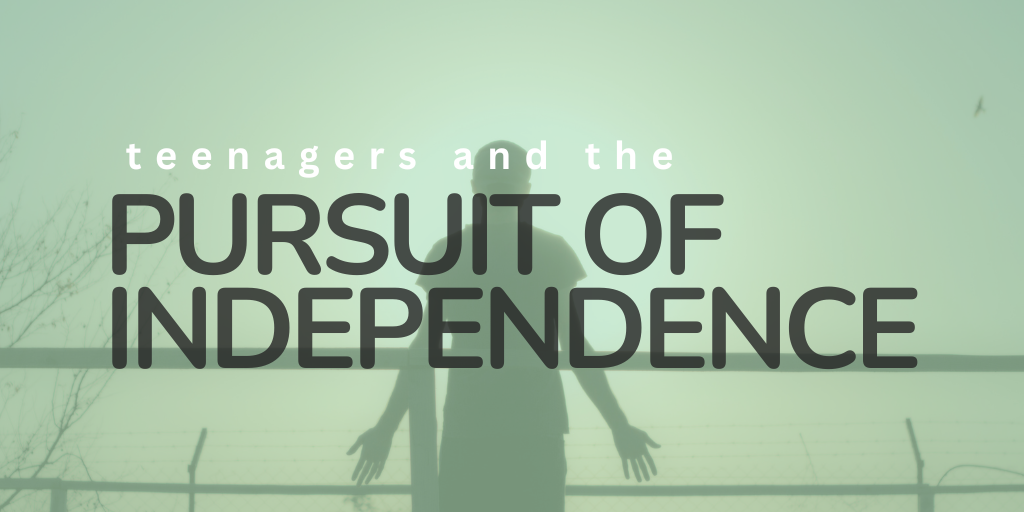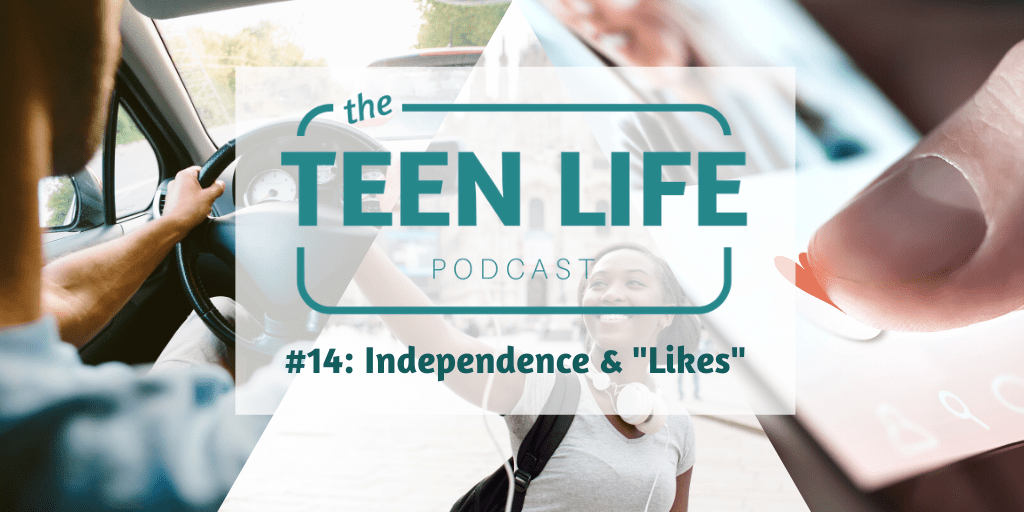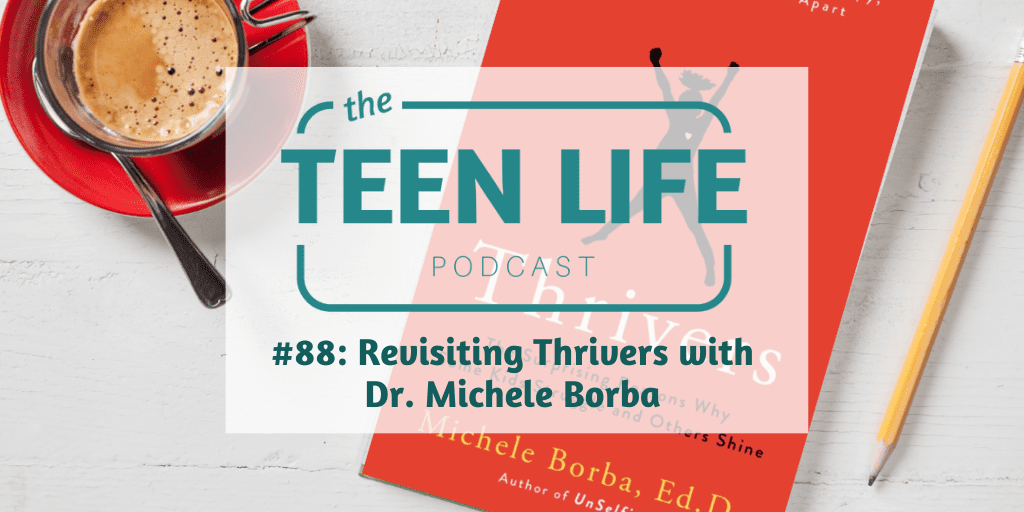Helping Teens Navigate the Shift from Dependence to Freedom
One of the core tasks or “jobs” of adolescence is figuring out how to go from being a kid who depends on adults to becoming an adult who can stand on their own. It’s a big leap. And (spoiler alert) it doesn’t happen overnight.
This journey toward independence is both natural and necessary. It’s part of healthy development. But let’s be honest, it’s not always smooth. It can look like door slamming, dramatic sighs, constant phone scrolling, or the infamous phrase: “You just don’t understand!”
But what if we did understand a little better?
Let’s peel back the curtain on why teenagers crave independence, and how we, as the trusted adults in their lives, can guide them to seek that freedom in a healthy, growth-filled way.
Why Does Independence Matter to Teens?
From the time they hit middle school, teens start to wrestle with questions like:
- Who am I apart from my parents or caregivers?
- What do I believe? What do I want? What matters to me?
- Can I make choices on my own? And what happens when I do?
They’re testing boundaries, not just to be rebellious, but to figure out where the boundaries are and whether they still need them.
That deep desire for freedom is hardwired into the teen brain. And let’s be real: sometimes their fight for independence is loud. But that fight isn’t always about us as adults. It’s about them trying to make sense of who they are and who they are becoming.
What Does This Need for Independence Look Like?
The need for independence can show up in all kinds of ways, some obvious and others more subtle:
Increased Phone Usage
It might not just be a distraction or addiction. Their phone is often their portal to freedom, privacy, and identity exploration.
Pulling Away from Family
Teens may start choosing friends, sports teams, youth group, or even solitude over family dinners. This is normal, but it still matters how we respond.
Testing Limits
This might look like breaking curfew, pushing back on rules, or wanting to be the one who decides what’s “fair.”
Making Big Declarations
“I’m not going to college.” “I’m moving out the second I turn 18.” These dramatic statements often mask a deeper desire to be taken seriously.
Instead of just seeing these as problems to fix, we can learn to see them as signs of a young person becoming someone who’s learning to step into adulthood.
How Can We Help Teens Seek Freedom in a Healthy Way?
Helping teens learn independence is a balancing act. I won’t pretend that it is easy…you once changed their diapers, tied their shoes, and reminded them to wear deodorant. But here are a few practical ways we can support that journey:
1. Give Age-Appropriate Responsibility
Want a teen to act like an adult? Give them small ways to be one. Chores, part-time jobs, managing their own money, and decision-making opportunities all build confidence and autonomy. If you want them to know how to do something when they are on their own, let them practice while they are still with you.
2. Offer Freedom with Boundaries
Freedom without guidance is chaos. Boundaries without freedom feel like a cage. It’s okay to say, “You can do this, but here’s the limit.” Teens will probably push back. That’s not failure; it’s part of learning how freedom works.
3. Stay Connected, Even When They Pull Away
Teens may not say it, but they still need you. In fact, their independence journey works best when they’re securely attached to safe, caring adults. So show up. Keep asking questions. Don’t take the silence or eye-rolls personally. Independence isn’t about doing life alone. It’s about having the confidence to try, knowing someone has your back.
4. Affirm Their Growth
Celebrate when they make good choices. Let them know you see how they’re maturing. Even when they mess up (and they will), focus on growth over guilt.
5. Be a Safe Place for Hard Questions
Sometimes teens just want to try out ideas without being corrected or judged. Create space for that. Curiosity is not rebellion, it’s exploration. Maybe they even need to find a place outside of home that offers this. See if Teen Life Support Groups are on their school campus. They are a great place for teens to ask questions and express their feelings with trusted adults and peers.
Reminder: Freedom is a Process, Not a Switch
Here’s the truth, teenagers don’t wake up one day and suddenly become responsible, self-sufficient adults. The transition period is often awkward and full of mistakes, but independence is best found with support, trust, and grace.
So the next time you’re faced with a teen who’s pushing boundaries or glued to their phone, pause and ask: What freedom are they really looking for?
Then lean in. Not to control, but to help develop that independence muscle.
When teenagers feel like they have earned that freedom in a safe environment, it is a beautiful thing to witness.

Karlie Duke
Communications Director
Karlie Duke | Director of Communications
Karlie has always had a heart for teenagers. Through her role at Teen Life, she loves to showcase the amazing stories coming out of Support Groups, but she is especially passionate about helping adults and teenagers find connection. Karlie has a BS in Communications with a minor in Family Studies from Abilene Christian University.



